My Amazing SAIF Journey
Studying at SAIF has been a rewarding journey so far and has certainly lived up to my expectations. The classes at SAIF are challenging, and its curriculum is well-structured. I was able to build a foundation of financial knowledge without having much prior exposure. The wide range of electives, from machine learning to internet finance, also provided a wealth of options to build atop that foundation according to my interests. With SAIF, I visited Singapore in the very first month of the program, visited many companies in Shanghai, and later spent a semester in Milan during my second year. I was able to put my knowledge to practical use when I interned with the Asia Infrastructure Investment Bank in Beijing over the summer. Most importantly, the people at SAIF make tremendous friends and travel companions.
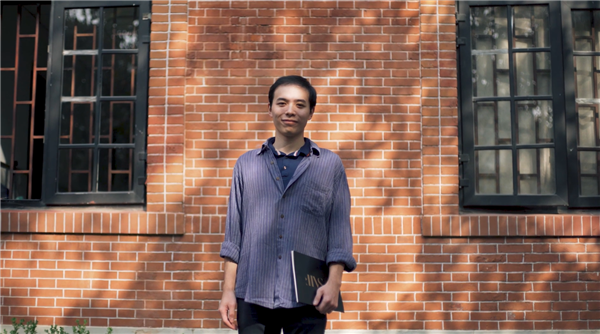
Of course, my experience at SAIF would not be without regrets. I could be more proactive in pursuing professional activities and should have ventured out of my comfort zone more daringly. But overall, I had a blast.
The opportunity to study in different countries (and indeed continents) has broadened my horizons and enriched my experiences. From a historical perspective, the legacies of Roman/Italian and Chinese cultures have endured millennia of repeated collapse and renaissance, and both have an outsized impact on the world today. When the opportunity to exchange at Bocconi serendipitously came up, I was quick to apply as I am obsessed with Roman history and had yet to visit continental Europe. I remember reading Gibbon’s The History of the Fall and Decline of the Roman Empire in college and was simply blown away by the romance of Rome’s spiraling decline. Glorious as it was, Rome was equally defined by periods of folly—from good Trajan to debauched Commodus, godlike Augustus to poor Pertinax. So, I guess my semester in Italy was, in addition to living and studying in a different culture, a chance to visit the vestiges of the ancient empire. But my four months there has yet to satiate my curiosity for ruins, museums, and relics of all sorts. More importantly, I sought to trace from the branches of Western society, not least that of the United States, to their roots and foundations firmly established thousands of years ago in the bosom of the Tiber. Living in Italy, a new and at the same time ancient country, reminded me to see ideas and events through a historical lens.
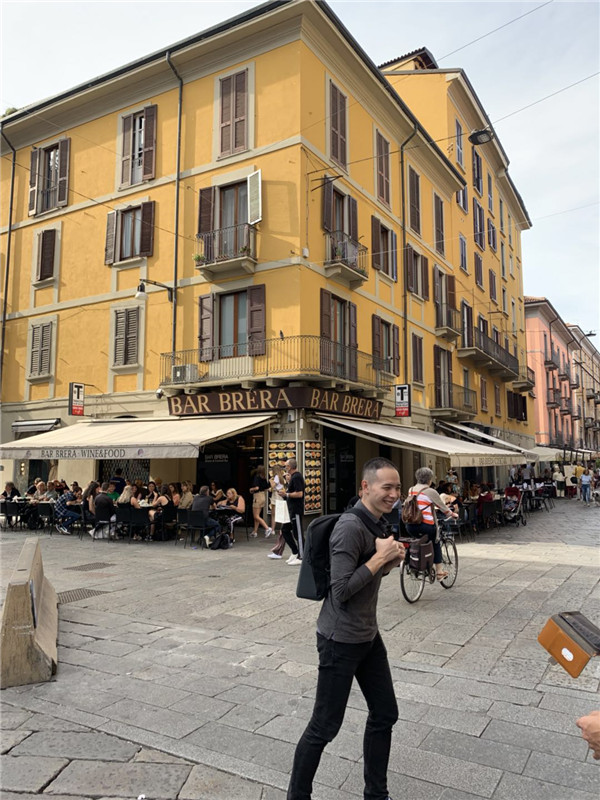
My experience and motivations for studying in China, however, are different. I have a much more intimate relationship with my local classmates, and my upbringing as a Chinese American allows me to form a deeper understanding of Chinese culture and history. Therefore, I find myself able to empathize with Chinese perspectives on global issues in ways that most of my American peers can’t. I also appreciate the diversity of cultures in China, having traveled extensively throughout the country and having spent my past summer in Beijing.
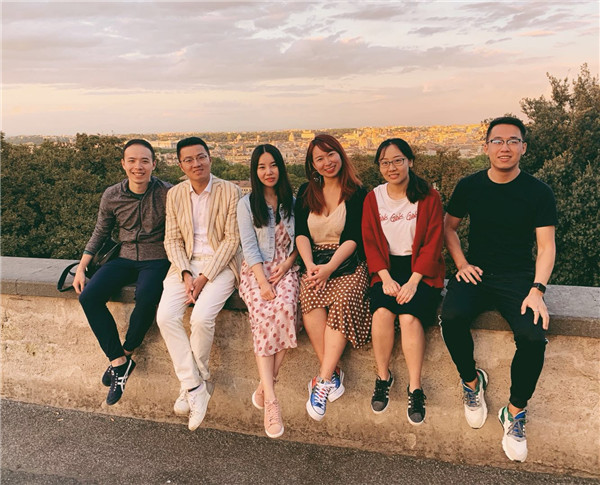
Moreover, I admire my MF classmates at SAIF, who are driven, entertaining, and humble. In over a year, some of my classmates have become very close friends. The professors with whom I had the opportunity to take a class are passionate, knowledgeable, and down-to-earth. It would be hard to single out any one class, professor, or classmate since so many have had a lasting impression on me. I have also befriended many MBA classmates, from whom I learned a lot about working in China and the importance of skills outside of the classroom.
SAIF & Harvard in My Eye
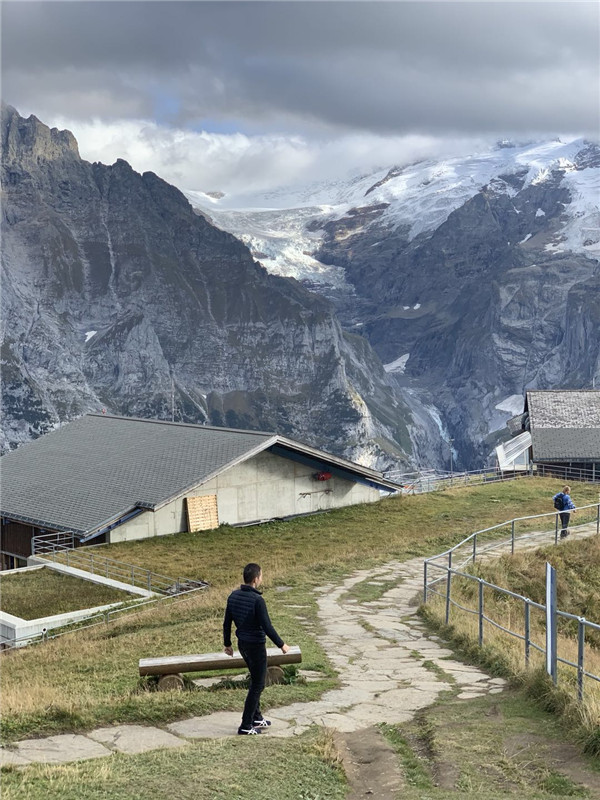
Harvard is, foremost, a liberal arts school, and as a result, it instills upon its students the importance of critical thinking and varied learning. As a math student, I had the opportunity to take classes in linguistics, history, art history, planetary sciences, and so on. This journey for self-improvement and the curiosity for new knowledge and experience don’t stop after receiving the diploma. In that sense, each of my peers has gone on their own unique and worthwhile paths after graduating. For me, I chose to study finance in China to develop a set of professional skills in finance and to learn more about the financial industry in China. Both objectives are hard to achieve at Harvard, where one must travel to MIT to take an accounting class! At Harvard, I was an organizing member of the China Forum, which organizes a large annual conference for thought leaders to discuss China-related issues on the Harvard campus. I led a panel on financial reform in 2016, and that was my first exposure to the financial industry. Of the competencies I have developed at SAIF, the most tangible is a robust and formal framework to think about finance, especially in asset pricing. Besides, the classes I have taken at SAIF have given me a multifaceted view of the challenges of the industry in China and abroad. Finally, I have learned much from my current classmates, and I’m sure they will continue to enrich me going forward.
Why I Would Recommand SAIF to You without Hesitate
For students with a strong math background, an interest in finance, and the wish to work in Asia-Pacific, I would recommend the MF program. In addition to what I have mentioned before, I think there is a niche that SAIF fills uniquely. In essence, Shanghai is an emerging global financial center that will see an increased demand for financial expertise and international experience. SAIF serves a role as a thought hub for Shanghai’s future financial policies and as an incubator for finance talent.
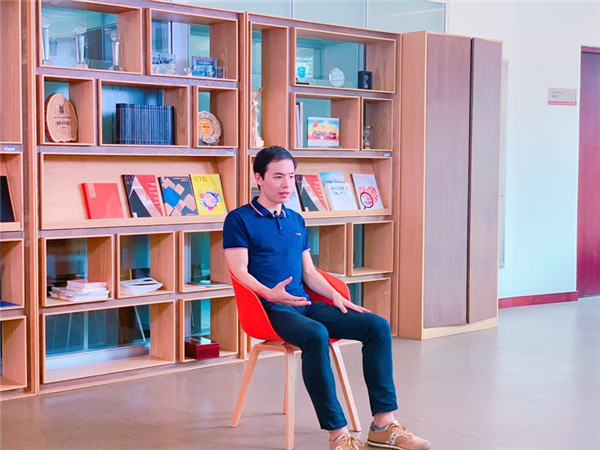
I would like to thank the program for allowing me to be part of the SAIF family. My life would not be the same without my experience with SAIF. I thank my professors for giving me guidance and knowledge, and my friends for providing encouragement and inspiration.






